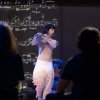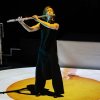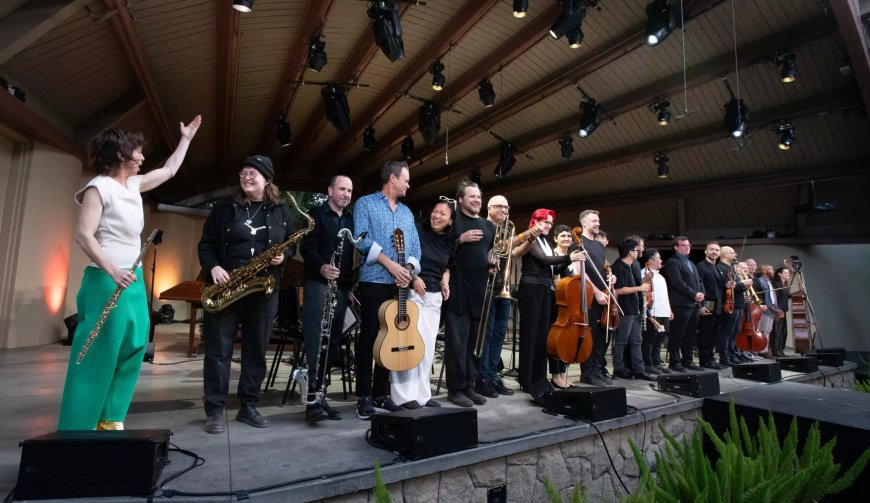
While the bulk of this year’s Ojai Music Festival was given over to Music Director Claire Chase’s mammoth Density 2036 project and female composers in general, a seminal contemporary figure nearly got lost in the shuffle. This would be Terry Riley, who will turn 90 on June 24 and miraculously remains a productive contributor to the new-music scene.
Currently living in Japan, Riley ultimately couldn’t make it to Ojai — out of sight but hardly out of mind. He reportedly watched the concerts via livestream, and on Friday night, June 6, shortly before some of his music was played, Chase had everyone in Libbey Bowl say hello to Terry on the other side of the world.
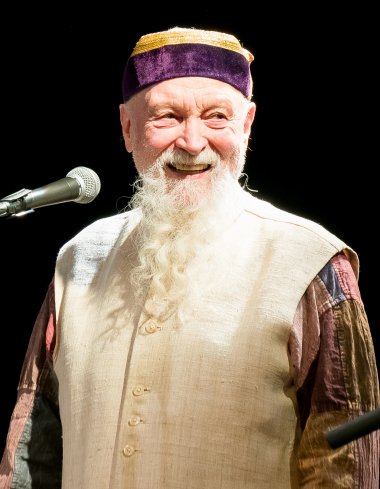
You could think of Riley as the fountainhead of a good deal of what audiences heard at the festival. His influence largely comes down to a single work, In C, which in its day represented an unthinkable break with not only the serial-music orthodoxies that dominated academia and criticism but also everyday programming in concert halls. Conceived in 1964 and recorded in 1968, In C advocated simplicity, repetition, process, ritual, and a dedication to tonality that fueled the minimalist rebellion to follow. Riley would go in other directions from there, emerging as a prolific composer of string works for the Kronos Quartet, concertos for organ and electric violin, solo piano music, world-music hybrids, and so much more.
Yet there was nothing retrospective about Riley’s contributions to Ojai 2025. The works that he provided were up-to-the-minute reports on what the soon-to-be nonagenarian is pursuing.
The biggest offering was an airing of excerpts from The Holy Liftoff, a massive ongoing project that Riley has been compiling for Density 2036. Some of these “scores” were on display near the Libbey Bowl entrance — fanciful drawings of birds and other creatures surrounding floating lines of notation. They’re supposed to be collaborative pieces, with the drawings providing the “liftoff” for performers to fill out the compositions.
“Everything is going up, it doesn’t matter what it is. It’s kind of like gravity has suddenly released everything,” Riley says with characteristic mysticism in an interview in the festival’s program book. “I’m going to lift off too, in the not-too-distant future. I’m looking forward to that!”
A brief sample from Riley’s levitation exercises could be heard during Friday morning’s concert, which led off with the composer’s Pulsing Lifters (2024) in Alex Peh’s arrangement for two pianos, harpsichord, and droning electronics. The work has an ethereal atmosphere — enhanced ad libitum by the ever-musical birds in Libbey Park — that emerges ever so slowly, very much in tune with today’s chill-out music. Cory Smythe and Craig Taborn manned the pianos, Peh the harpsichord.
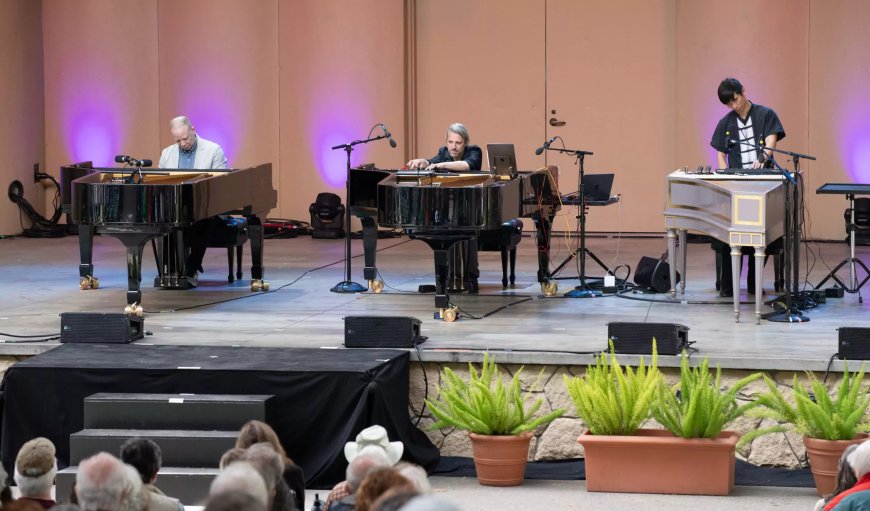
A much wider selection of material from The Holy Liftoff, as realized by Samuel Clay Birmaher, was presented the same night as the centerpiece of a program appropriately titled “Varieties of Transcendence.” Lasting about three-quarters of an hour, the excerpts, played without pause, opened with a gorgeously melodic, electronically multilayered flute solo from Chase, her thread soon taken up by the JACK Quartet. At times, the string players would set repetitive patterns for Chase to soar over, or there would be a call-and-response between Chase’s bass flute and the foursome. Late in the sequence, a jazzy stream of thought, reflecting Riley’s early career playing in piano bars, took over, with the JACK Quartet thumping out pizzicatos.
What all of these lovely pieces have in common is a sense of ceaseless flowing, like that of a river. At certain transition points, we heard the recorded voice of Riley himself announcing the titles of these excerpts: “E-flat Minor Ishi,” “All Arise,” ”The Tragedy of What We Lost,” and finally, “Liftoff Harmony.”
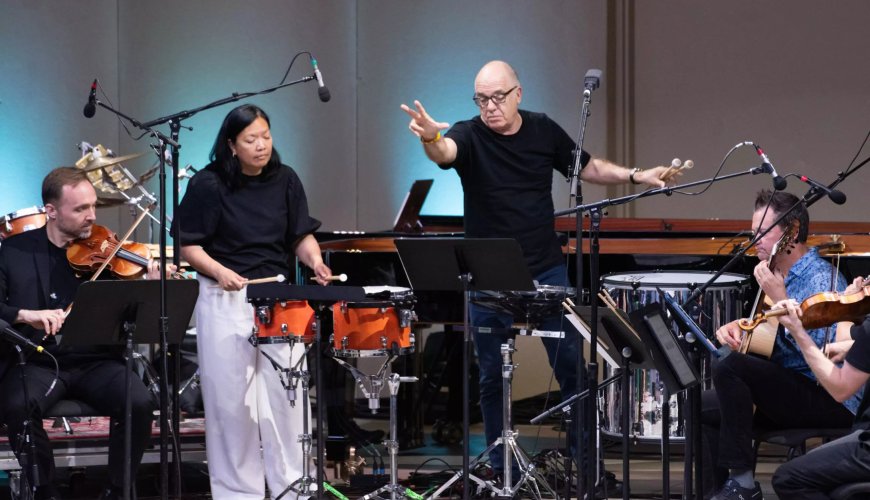
For the traditional late Sunday afternoon finale on June 8, Riley sprung a new composition, Pulsefield (2024–2025), upon Chase and Ojai. This 22½-minute work in three continuous sections was very different — brash, full of beans, taking off on a stuttering three-note unison pattern. It was not clear if the first two sections were world premieres; only Pulsefield 3 had that undisputed distinction.
As for the performance, it was everyone-into-the-pool time. Virtually all of the musicians who took part in the festival crowded onto the stage, loosely led by Steven Schick, who signaled the changes in rhythm. As long as Schick, the marvelous drummer and composer Susie Ibarra, and the other percussionists were maintaining the pulse, the thing rocked like a machine gone wild. But when they dropped out, the piece seemed to disintegrate, and only when Ibarra and Schick reestablished the beat did the ensemble get out of the ditch.
At the end, everyone onstage was advised by Riley to sing the catchy riff as the volume dropped, but only some did. Ultimately, Pulsefield was a joyously raucous way to conclude a provocative festival.


